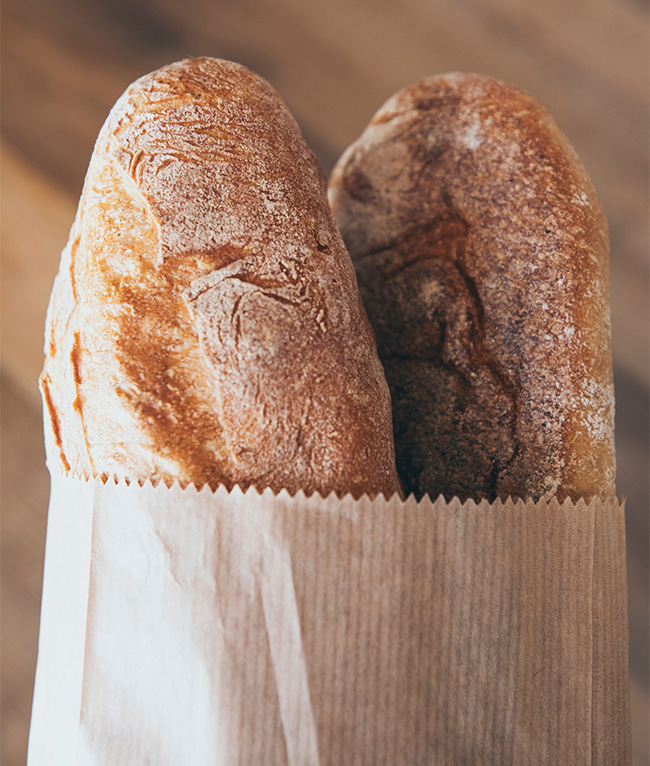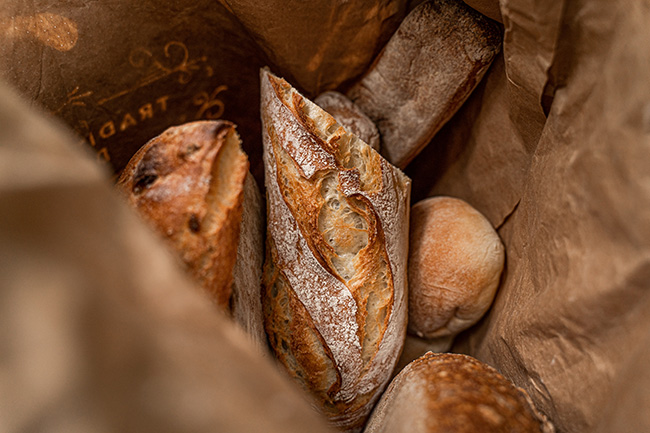UNESCO Celebrates the Baguette

The UNESCO Intangible Cultural Heritage of Humanity is a distinguished — if somewhat nebulous — mark of prestige that recognises the traditions which make cultural expression an authentic mélange of food, music, literature, knowledge and crafts. In an era of increasing globalisation, it’s becoming essential to preserve these potent nuggets of identity which are beacons of soft power — symbols of the idiosyncrasies which make each society and community distinct.
These colourful traditions include that of the Hungarian string band, the art of mask dance drama in South Korea, the straw-weaving tradition of Belarus and the culinary practice of making harissa in Tunisia. And last week, it was France’s turn to join these cornerstones of cultural civilisation. This year, the seventeenth UNESCO committee met in Rabat where it concluded that the “artisanal know-how and culture of baguette bread” warranted the coveted recognition of the 76-year-old institution of UNESCO, an organisation that has championed international cooperation and unity since the end of the Second World War.
What’s curious about the award’s French iteration is that it celebrates the craftsmanship and skill of creating the baguette. Indeed, rather than shining the congratulatory spotlight on the highly stereotyped and excessively clichéd trope of the white French stick itself, the honour has been designated as belonging to those who have dedicated their professional lives to the refining of their country’s most cherished gastronomic tradition.
What it shows is that the baguette isn’t merely a stalwart of the French breakfast, lunch and dinner table, but a vessel of heritage that harks back possibly to the French Revolution, when riots broke out among the inflation-struck population, insistent that the price of bread should be standardised. Indeed, the price of the baguette has fluctuated to reflect these turbulent times: in 1960, when the currency was the French franc, the daily bread cost 35 centimes (roughly equivalent to €0,05 today), in 1980 a baguette would set you back 1.67 francs (€0,25) rising to 3.14 francs in 1990 (€0,48). The price of a baguette today has plateaued at around 85-89 centimes according to statistics provided by Insee, France’s national statistics institute, although in the French capital, it’s rare to come across a baguette for less than a Euro.

What’s your favourite kind of baguette? © Bas Peperzak
And the consumption of bread is so intrinsic to the French way of life that in 2006, the Observatoire du Pain was established in France. It’s the only country to have such an organisation which sees the baguette craft as one which it must regulate and preserve. This most basic form of sustenance –supposedly consumed around 320 times per second — exists in so many varieties: the baguette classique, the tradition, the ficelle, the flûte. Such a simple bread form has taken on such a multitude of variations, but one thing endures — the baguette’s four ingredients: wheat flour, water, salt and yeast. The freshness of the 250-gram loaf is of such gravitas that in 1993, the French government stipulated in its Décret Pain that every boulangerie must make its wares in the same premises in which the bread will be sold.
But how meaningful is the award for French citizens, and the boulangers among them? While it will undoubtedly attract additional recognition of France’s gastronomical prowess, an element of UNESCO’s decision-making is tokenistic. French cuisine doesn’t need an award to acknowledge its reputation as a culinary haven worldwide – in fact, the tradition of crafting baguettes is arguably far more internationally admired than that of the Belarusian straw-weaving practice or the art of mask dancing in South Korea.
But there are signs that the craft may still be under threat. In rural areas, in particular, larger chains are driving out traditional family-run bakeries. Furthermore, inflation caused by the hiking of flour prices after Russia’s invasion of Ukraine has put additional strain on smaller businesses, which are unable to absorb the costs and have therefore been forced to hike their prices. Perhaps then the award can be viewed as a homage to those boulangeries which have stood the test of time — and those which sadly have not.
Is UNESCO’s identification of the baguette as a global cultural phenomenon — which is so synonymous with French culture that the mere sight of one conjures hyperbolic impressions of an ardent Frenchman — enough to keep the humble hallmark of Frenchness alive? On verra.
Baguette Etiquette
DO:
– Buy your baguette first thing in the morning
– Enjoy it with salty butter
DON’T:
– Buy your baguette from a supermarket
– Put it upside down on the table
Try baking some baguettes yourself with this Taste of France recipe.
Lead photo credit : Do you need a reason to enjoy a baguette with a crunchy crust? © Markus Spiske
Share to: Facebook Twitter LinkedIn Email
More in baguette, French bread, UNESCO
Leave a reply
Your email address will not be published. Required fields are marked *



